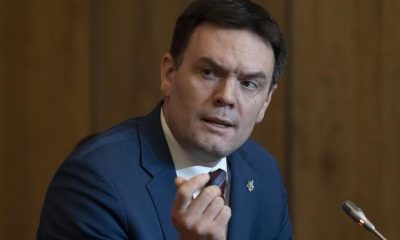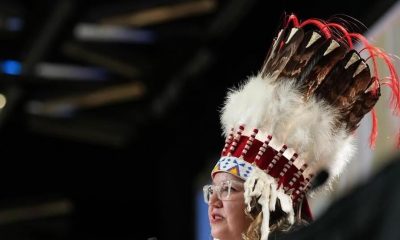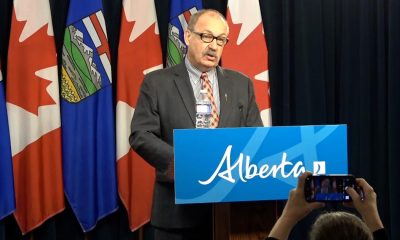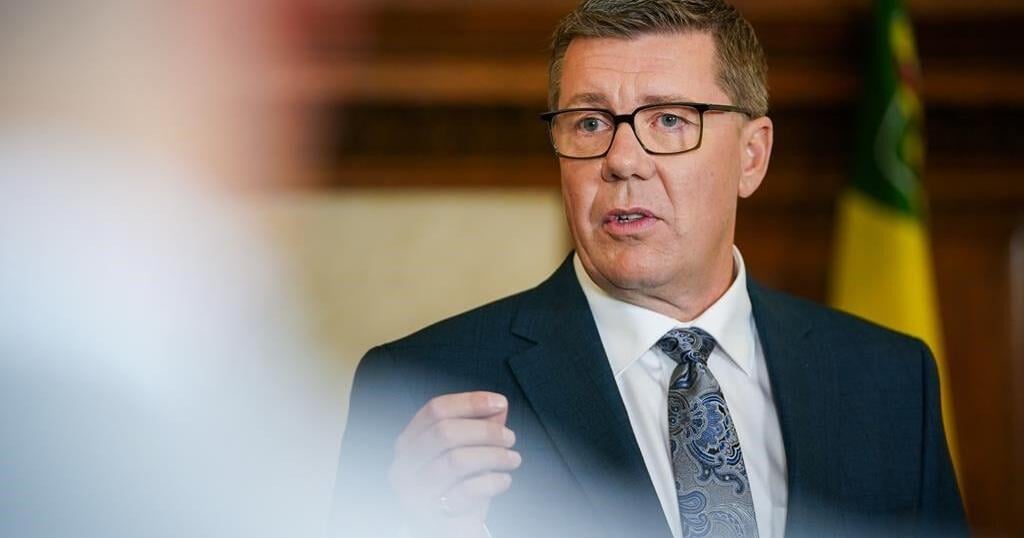REGINA – Saskatchewan Party Leader Scott Moe is promising a directive banning “biological boys” from using school changing rooms with “biological girls” if re-elected, a move the NDP’s Carla Beck says weaponizes vulnerable kids.
Moe made the pledge Thursday at a campaign stop in Regina. He said it was in response to a complaint that two biological males had changed for gym class with girls at a school in southeast Saskatchewan.
He said the ban would be his first order of business if he’s voted again as premier on Oct. 28.
It was not previously included in his party’s campaign platform document.
“I’ll be very clear, there will be a directive that would come from the minister of education that would say that biological boys will not be in the change room with biological girls,” Moe said.
He added school divisions should already have change room policies, but a provincial directive would ensure all have the rule in place.
Asked about the rights of gender-diverse youth, Moe said other children also have rights.
“What about the rights of all the other girls that are changing in that very change room? They have rights as well,” he said, followed by cheers and claps.
The complaint was made at a school with the Prairie Valley School Division. The division said in a statement it doesn’t comment on specific situations that could jeopardize student privacy and safety.
“We believe all students should have the opportunity to learn and grow in a safe and welcoming learning environment,” it said.
“Our policies and procedures align with the Canadian Charter of Rights and Freedoms, the Canadian Human Rights Act and the Saskatchewan Human Rights Code.”
Asked about Moe’s proposal, Beck said it would make vulnerable kids more vulnerable.
Moe is desperate to stoke fear and division after having a bad night during Wednesday’s televised leaders’ debate, she said.
“Saskatchewan people, when we’re at our best, are people that come together and deliver results, not divisive, ugly politics like we’ve seen time and again from Scott Moe and the Sask. Party,” Beck said.
“If you see leaders holding so much power choosing to punch down on vulnerable kids, that tells you everything you need to know about them.”
Beck said voters have more pressing education issues on their minds, including the need for smaller classrooms, more teaching staff and increased supports for students.
People also want better health care and to be able to afford gas and groceries, she added.
“We don’t have to agree to understand Saskatchewan people deserve better,” Beck said.
The Saskatchewan Party government passed legislation last year that requires parents consent to children under 16 using different names or pronouns at school.
The law has faced backlash from some LGBTQ+ advocates, who argue it violates Charter rights and could cause teachers to out or misgender children.
Beck has said if elected her party would repeal that legislation.
Heather Kuttai, a former commissioner with the Saskatchewan Human Rights Commission who resigned last year in protest of the law, said Moe is trying to sway right-wing voters.
She said a change room directive would put more pressure on teachers who already don’t have enough educational support.
“It sounds like desperation to me,” she said.
“It sounds like Scott Moe is nervous about the election and is turning to homophobic and transphobic rhetoric to appeal to far-right voters.
“It’s divisive politics, which is a shame.”
She said she worries about the future of gender-affirming care in a province that once led in human rights.
“We’re the kind of people who dig each other out of snowbanks and not spew hatred about each other,” she said. “At least that’s what I want to still believe.”
Also Thursday, two former Saskatchewan Party government members announced they’re endorsing Beck — Mark Docherty, who retired last year and was a Speaker, and Glen Hart, who retired in 2020.
Ian Hanna, a speech writer and senior political adviser to former Saskatchewan Party premier Brad Wall, also endorsed Beck.
Earlier in the campaign, Beck received support from former Speaker Randy Weekes, who quit the Saskatchewan Party earlier this year after accusing caucus members of bullying.
This report by The Canadian Press was first published Oct. 17, 2024.
— With files from Aaron Sousa in Edmonton



































